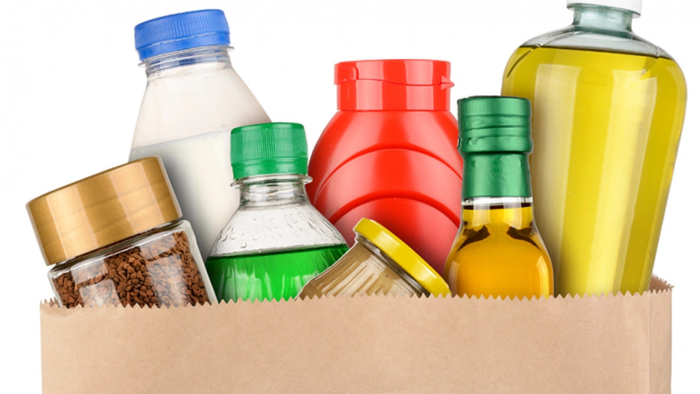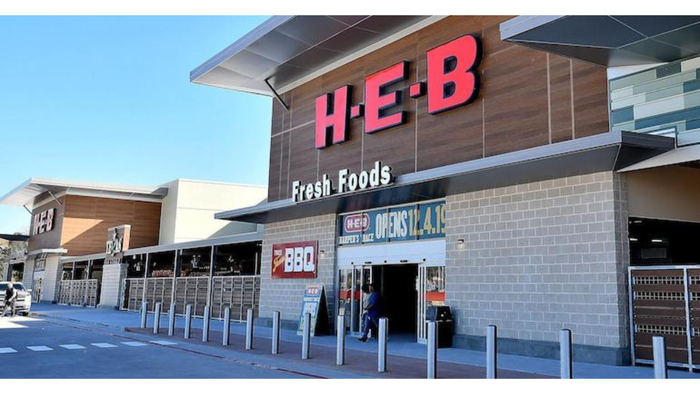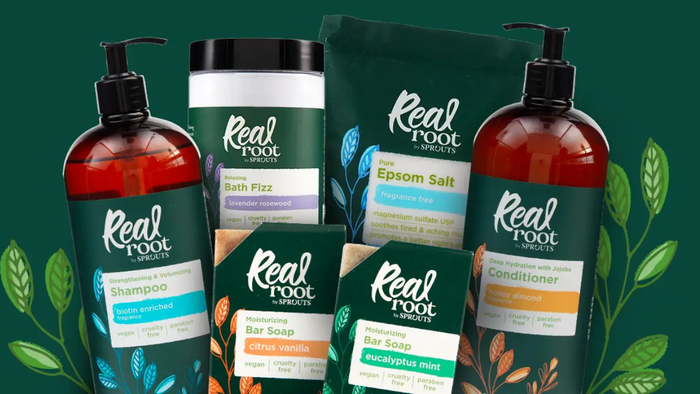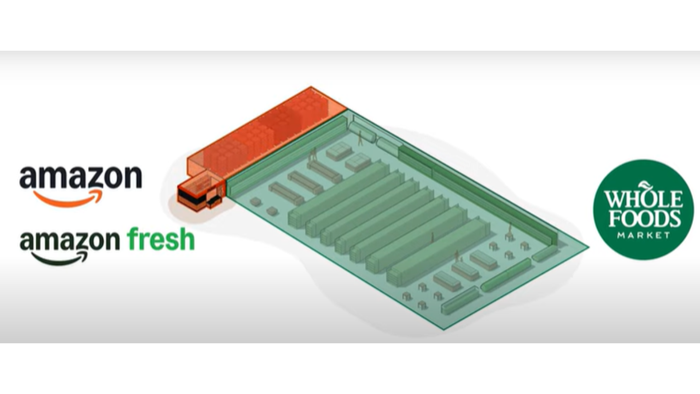Perfect game
January 1, 2018
A sparkling industrial-chic store overflowing with produce, service meats, specialty and mainstreamgrocery, plus a popular restaurant, puts a supermarket named after a bowling alley smack in the fast lane. By Richard Turcsik Best known for its namesake university and reputation as a diverse liberal enclave, Berkeley, Calif. has added another claim to fame—the home of Berkeley Bowl Marketplace. The two-unit operation has been drawing a growing swarm of shoppers from throughout the Bay Area, especially to its colossal Berkeley Bowl West unit, which opened in June 2009 in a new industrial chic building on land that once was a foundry. People swear by the store’s vast selection, the freshness of its perishables and white-hot prices. Typical of its offerings: five kinds of asparagus, a dozen kinds of organic potatoes, 48 linear feet of mushrooms, and a 5-pound bag of romaine salad mix that can be had for just $1.99. It’s that type of atmosphere that has made Jim Neff a convert. The Oakland resident can choose among a number of closer supermarkets. A Whole Foods is practically around the corner and Safeway and Trader Joe’s are nearby too. Yet he frequently finds himself driving some five miles from his residence to the new Berkeley Bowl West in Berkeley. “I find their prices are much cheaper and the stuff is better—like the produce,” he says. “It’s like a farmers’ market inside.” That’s because Berkeley Bowl West houses what is billed as “the largest produce department in Northern California,” and judging from the size and selection that’s no understatement. The department runs three-aisles deep along the length of the store’s back wall, encompassing some 10,000 square feet of selling space or about a third of the size of a conventional supermarket. “Produce has always been our biggest item, although in this store grocery is kind of equal,” says vice president Diane Yasuda, who is co-owner with her husband, Glenn, who is president. Bowling alley beginnings The couple founded Berkeley Bowl in 1977, after returning from studying abroad in Japan. They were interested in opening a produce stand and saw an old bowling alley on Shattuck Avenue, Berkeley’s main drag, with a “for lease” sign on it. “We inquired about leasing it, but because it was an old, old building and had been empty for at least 10 years, they just wanted to sell it, so we ended up buying the building,” Yasuda says. The couple ripped up the old warped lanes and sold off those that were salvageable. That first store specialized in produce, with the other departments, including meat, floral and coffee, leased to fellow entrepreneurs. In 1999, the Safeway across the street announced it was going to close, sparking a neighborhood uproar and the establishment of a grassroots organization called the Community for Full Service Supermarkets. “There was this big rally and it became hard for Safeway to sell the building to anybody else, so we ended up buying that old Safeway and renovating it,” Yasuda says. The original bowling alley now houses a sporting goods store. As part of the move to the 40,000-square-foot space, the Yasudas took over ownership of the leased departments and added a full grocery offering. With its abundance of organic and natural items, the store became an instant hit, attracting college kids as well as Berkeley’s back-to-nature crowd. It actually became too popular. Parking was—and is—in short supply, driving the opening of a second location. Even with the new store, during the day surrounding side streets at the old store are cordoned off to prevent shoppers from parking their vehicles there. “I’ve never been to the original store,” says customer Neff. “I just heard that the parking was so awful and the store so crowded that I just stayed away from it.” Berkeley Bowl West is less than a mile from the other Berkeley Bowl, now dubbed Berkeley Bowl East, but remarkably attracts a different customer base with different shopping needs. “This store gets shopped late in the day, but at our other store the traffic is more consistent,” Yasuda says. “This store has a much bigger meat department. In the other store we sell a lot of chicken and fish. Here they eat meat,” she says. With a location about a minute off Interstate 80 and across the street from Orchard Supply Hardware, Berkeley Bowl West is attracting shoppers from San Francisco and beyond. The store is housed in a two-story “industrial chic” building that looks like a factory or office building from outside. “We had to put up sign boards because our building doesn’t look like a store. People would be practically in front of it and we’d be outside and they’d ask us, ‘Do you know where Berkeley Bowl is?’” Yasuda says. “It took us three years to get this thing off the ground,” she says, noting the store had to clear the land of toxic waste and jump over the numerous ordinance and legislative hurdles, for which Berkeley is infamous. Here’s one example. Even though it is mid-block on Heinz Avenue, and more than a thousand feet from its cross with San Pablo Avenue, Berkeley Bowl has to pony up $400,000 for a traffic light at the intersection. With more than 214 spots, parking at Berkeley Bowl West is not a problem. In addition to the main surface lot, there is an underground lot with elevator access to the store. But business has been so brisk that in November a third overflow lot opened across Heinz Avenue on the site of a former towing yard. Best burgers Along Heinz Avenue a high breezeway connects the main store with its café, housed in a separate building and containing a second floor used as a community meeting room. Open for breakfast and lunch, Berkeley Bowl West Café features a wood-fired grill and is noted for its freshly ground chuck-and-sirloin burgers, featuring a half-pound of meat. “Everybody tells me we have the best hamburger—ever!” Yasuda proudly exclaims. “We make everything from scratch, including our signature salt-and-pepper potato chips and bread-and-butter pickle spears.” Other café favorites include White Truffle Lobster Mac and Cheese ($6.95), Portobello Mushroom Burger, Juniper Brined Center Cut Pork Chop, Duck Shepards Pie, The Bowl’s Tarragon Chicken Salad and house-made pizzas cooked in a 775-degree oven. Most modern supermarkets have extensive backrooms and Berkeley Bowl West does, too, except it’s on the second floor. Like the café, the main store is also two stories, with the second level used for offices, food preparation and the warehouse. A heavy earthquake-proof concrete floor allows for the use of forklifts to bring pallets of groceries up from the loading dock and down to the sales floor via industrial elevators. There are temperature-controlled rooms dedicated to floral, cheese prep, bulk foods and produce. One room is slated to become a wine tasting room. “We were actually going to have some sales up here,” says Yasuda. “I was going to have a room for housewares and special products, but we’re better off having all of our shopping conducted on one level.” The second floor also contains the kitchen and prep areas for the deli and prepared foods departments. “The kitchen upstairs is big enough to cook for a casino,” Yasuda says. Shoppers enter the store by the floral department, where potted plants, arrangements, bouquets and even entire limb flowering cherry branches are in constant supply. “Our buyers go Monday, Wednesday and Saturday to the San Francisco Wholesale Flower Terminal,” Yasuda says. “Almost all of our flowers are purchased directly from local growers and wholesalers in Watsonville, Salinas and Half Moon Bay.” Artisan breads After floral, shoppers flow into the bakery department, where in addition to store-baked goods, they snap up artisan breads from Acme Bread, Artisan Bakers of Sonoma, Semifreddi’s Bakery, Whole Grains Bakery out of Santa Clara and The Phoenix Pastificio Bakery in town. “We get some different foods here that nobody else has,” Yasuda says. “We have some fabulous desserts, for example, that we get from a restaurateur who owns Artisan Foods of Berkeley, a little French bakery that supplies his six restaurants with cakes. He is willing to bring them in for us at a really hot price.” The adjacent prepared foods areas feature an extensive Cheese Island, deli and several hot departments, including a House Made Soup Bar, Asian Kitchen Oriental foods and Taqueria Mexican food station, as well as a salad bar where the offerings are artfully arranged on ceramic dishes instead of the typical stainless steel troughs. There is also an Aurora Sushi counter, which is the store’s only leased department. Prepared foods lead into a large bulk department, which is a first for Berkeley Bowl. The bulk concept is definitely gaining popularity in Berkeley—even the HBC department features a bulk bar. Gallon jugs containing shampoos, conditioners, skin creams, facial cleansers and other products have a pump dispenser and a hand-written code on them. “We have containers, but most people bring their own. We weigh it and then they fill it and put the code number on it and we weigh it again,” Yasuda says. World of produce Adjacent to the bulk department is Berkeley Bowl’s produce department, although to call it a department is an understatement. Occupying an estimated 10,000 square feet, it is clearly a store unto itself. “In our other store, produce is one-third of the whole market, but in this larger store, produce is only 25%,” Yasuda says. About 1,000 square feet is devoted to organic produce, which is merchandised in a distinct department complete with its own old-fashioned weigh station. “We keep the organic produce separate from the conventional produce because people don’t want to have it mixed,” Yasuda says. “The other reason we do it this way is because there are so many items and it is very, very hard to distinguish an organic from non-organic. This way when they get to the checkstands it is already labeled.” There are hundreds of produce items, including Fair Trade and organic bananas, Fremont and Clementine tangerines, Golden Nugget Mandarins, purple and green kohlrabi, fennel, purple carrots, red chard, rainbow chard, turnips, rutabagas, honeydews, Winesap, Jonna Gold, Braeburn, Fuji, and California Arkansas Black apples. The conventional produce department is even more amazing, with outstanding variety, assortment and selection. One entire 12-foot display case is just filled with asparagus—pencil asparagus, asparagus tips, small asparagus, large asparagus and white asparagus. There’s a pick-your-own Green Leaf Salad Bar, where for $4.50 a pound consumers can pick their own selection of red romaine, green romaine, baby mixed lettuce, baby red chard, Tatsoi, baby red mustard greens, baby mizuna and braising mix. “We sell tons of these,” Yasuda says. “A lot of times people don’t want to have to buy a whole bag.” Then there are the bargains. Shoppers line up five-deep outside one nook where past-prime items are reduced for quick sale. Further down are bulk specials, like 5-pound bags of romaine blend lettuce or diced yellow onions for only $1.99, a 3-pound bag of broccoli florets for $1.50 and 2-pound bag of Mexican green onions for $1.99. “We have these when our produce buyer gets a really good buy. In our other store people won’t buy it, but here a lot of restaurants and caterers use it,” Yasuda says. Prices in both departments are marked on old-fashioned hand-written signs. “My husband makes all of the signs,” Yasuda says. “He was trying to train some others to write them out, but he’s done this for years and years and does it very quickly.” Branded meat The service meat and seafood departments are along the side wall, where they are merchandised side-by-side. “This is a totally new concept for us,” Yasuda says. “In our other store they are totally separate, but here when you take a number you can get served on both meat and seafood.” Price tags in the service case showcase meats by brand name: Harris Ranch, Rosie Free Range chicken, Meyer Natural Angus, Estancica, Marin Sun Farms, Eel River organic beef, Superior Farms lamb, Atkins Ranch New Zealand lamb, Becker Lane organic pork and American Homestead pork. Berkeley Bowl’s grocery selection is pretty standard, although there is a large assortment of Asian specialty products, all-natural, organic and gluten-free offerings. Yasuda is proud of Berkeley Bowl’s assortment of wines and beer. An entire refrigerated case, running some 100 feet is filled with beer. While there are Budweiser and Pabst, most of the beers in the department are microbrews. Berkeley Bowl West stocks some 100 brands of beer. That’s just in six-packs. An equal number of single bottles are available. Across from the registers is the store’s health and beauty department where some upscale and easily pilfered items are merchandised from oak and glass department-store style cases, their blonde wood reminiscent of Berkeley Bowl’s bowling alley roots.
About the Author
You May Also Like



.png?width=700&auto=webp&quality=80&disable=upscale)
